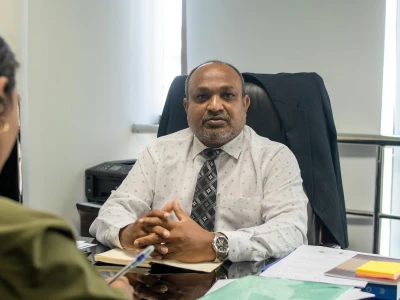
NDA warns over ‘major’ rise in synthetic drugs
The rise in synthetic drug use presents a complex challenge for both health professionals and law enforcement in the Maldives.
Top Stories
-
Ministry to assess repairs at Sinamalé, Malé Hiyaa flats
-
Authorities asked to probe blasphemous insults in TikTok live
-
Fine waiver, MVR 100k allowance for Sinamalé, Malé Hiyaa flats
-
Referendum on merging elections with April 4 council polls
-
Fenaka Saeed transferred to house arrest over health reasons
The National Drug Agency (NDA) has raised alarm over the rising incidence of drug-induced psychosis across the country, attributing the increase to the growing prevalence of synthetic drugs.
Speaking at a press conference on Sunday, the NDA highlighted the growing challenge faced by both law enforcement and healthcare systems in combating the effects of these substances.
Synthetic drugs, known for their potent and unpredictable effects, are increasingly contributing to severe mental health issues among users, posing a significant burden on the Maldives' treatment infrastructure.
"A mental illness caused by drug-induced psychosis is being noticed with greater frequency today," an NDA official stated. "This is becoming a massive challenge for the treatment system."
The official explained that the Maldives’ current treatment model primarily focuses on detoxifying individuals and helping them recover from substance dependency. However, many cases now require comprehensive mental health interventions due to the severe psychiatric symptoms brought on by synthetic drug use.
“There are situations where children or individuals experiencing psychosis need specialised mental health care, but the system in Maldives is not fully prepared for such scenarios. It is becoming an increasingly difficult situation to manage,” the official noted.
Despite the rising number of people affected by drug addiction, the NDA highlighted that relatively few individuals are seeking or receiving psychological support. The agency urged the community to step forward and assist with psycho-social care, emphasising the importance of voluntary efforts to supplement the existing services.
The NDA also shared updates on ongoing rehabilitation efforts, revealing that 1,500 individuals are currently receiving treatment across ten centers under its programmes. In recent months, the agency has taken measures to revive several long-suspended services, marking a positive step in tackling the country’s drug problem.




